INTERVIEW AT THE GRAND
AN EVENING WITH ...
Mergers and acquisitions
How do they perceive the future of M&A?
What are the threats? What are the challenges?

Five people who have proven themselves more than worthy in the field of M&A
Annelies van der Pauw. Corporate lawyer at the international law firm of Allen & Overy in Amsterdam. Working in M&A since the end of the eighties. Marieke van der Kooi. Senior M&A lawyer ING Group and coordinator of the M&A Legal Flex Pool. Was part of the M&A team executing the Eur 40bn+ global restructuring programme agreed with the European Commission. Mike Jansen. Lawyer for over 25 years, mainly working on M&A. Moved from Baker & McKenzie to the Amsterdam office of Jones Day a year ago. Stewart McCrone. Certified Public Accountant. Heading M&A at Philips for three years. Was involved in splitting up Philips in a health part and a lighting part. And last but not least Kaspar Scheltema. Already working for twelve years for the M&A department of Air France-KLM and being involved in the merger of those two companies. How do they perceive the future of M&A? What are the threats? What are the challenges?
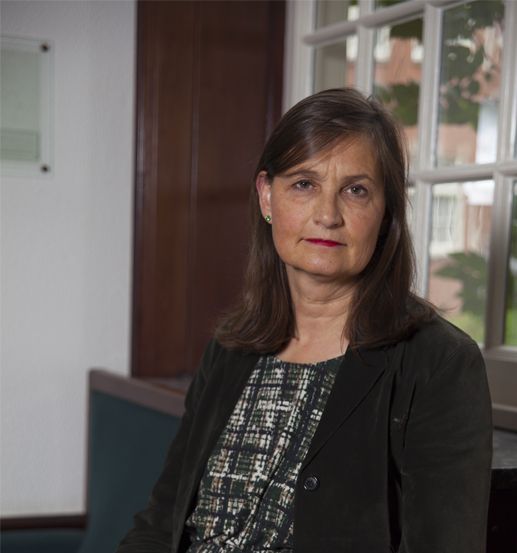
Annelies van der Pauw
Corporate lawyer
Allen & Overy

Mike Jansen
Lawyer
Jones Day
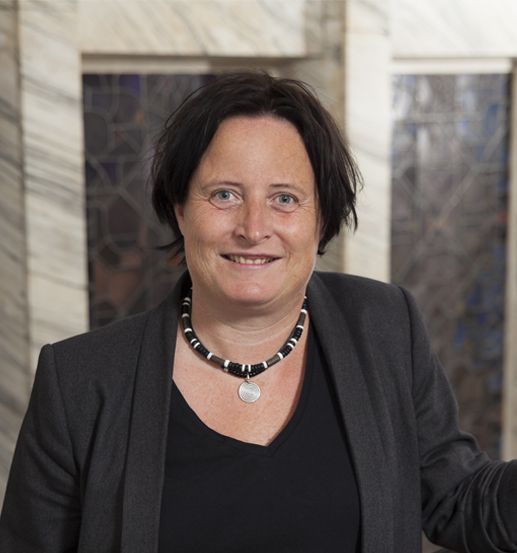
Marieke van der Kooi
Senior M&A lawyer
ING Group
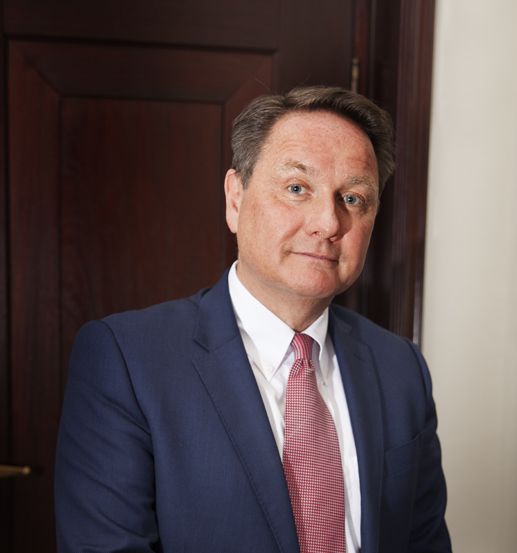
Stewart McCrone
Heading M&A
Philips
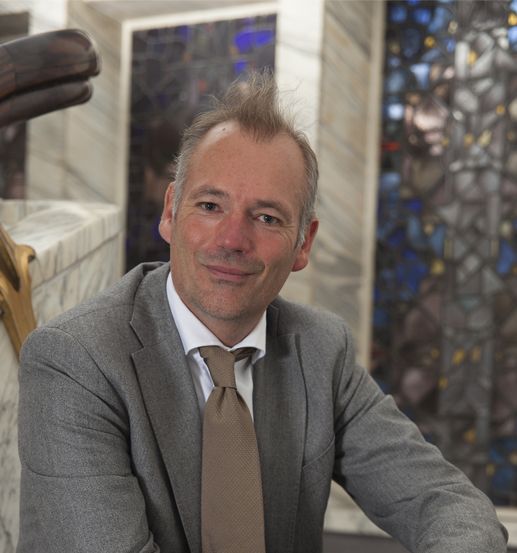
Kaspar Scheltema
Working for the M&A department
Air France-KLM
THE INTERVIEW
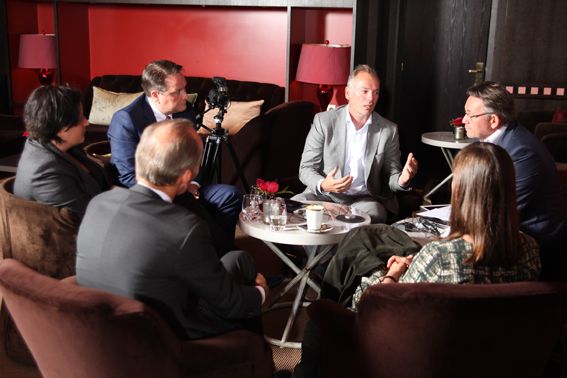


In 2016 M&A’s were up by 12%, which makes it a record year. Does that surprise you?
Annelies: No it doesn’t. It’s consistent with what we see in the Netherlands. Private equity and corporates seem to have quite some money to spend. A lot of funds, a lot of money worldwide. We also see a lot of confidence in the Dutch economy. A large confidence, as we can read in the papers as well. That all helps in M&A.
Are you surprised Mike?
Mike: Not at all. I fully agree. And there is a lot of interest from abroad for the Netherlands. Both in the US and Europe there is a lot of activity. People are looking for targets.
It’s up by 12% but the growth in money is half of this. So there are a lot of M&A’s but there is not as much money involved.
Marieke: Yes, we do a lot of smaller Fintech related transactions, both equity investments and partnerships.
Stewart: There is also a lot of money in private equity right now as everybody chases a better return than with low interest rates. So private equity is one of the places you get that. You also see more and more people putting money into hedge funds.
Two other things. American companies are more likely to buy outside of the United States because of the dollar and because of the tax cost of repatriation. If they take their money back to the US, they lose so much in tax. Both due to the US dollar and the cash outside the country, American companies are buying businesses in countries like the Netherlands as they offer comparatively good value. Now the current administration has said they are going to lower tax in the US in the future. Let’s see what comes of that.
Another trend we see in Healthcare is that there are a lot of smaller IT companies popping up. Healthcare is a business that is really behind in terms of digitalization, personalization, apps and joined-up thinking. Transactions I see in the Netherlands are often the smaller IT guys that are bought.
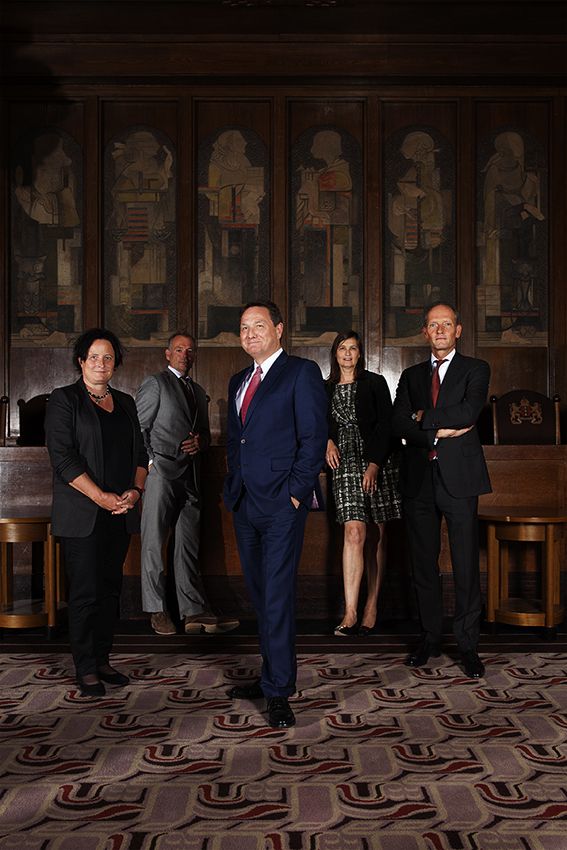
So what would be your advice in general? If you had some money, if you wanted to invest in private equity, which direction you would go at the moment?
Stewart: Not just because we are in Healthcare, but as you know, everybody is getting older. People are living longer and there’s not one government in the world that has a definitive solution to these rising costs. It reminds me a bit me of the defined benefit pensions schemes. These were also unsustainable in the long term and so are being phased out. Healthcare is a bigger challenge. People are getting older, living longer with chronic diseases. The number of people over 65, over 85, goes up every single year. So there are just more and more ‘customers’ who consume more and more healthcare product.
Annelies: The problem though is that the healthcare market is really growing but it’s also a heavily regulated market that is changing all the time. Clearly elderly people are poorer because they make less money. So in the future they may be protected by their governments. With maximum prices and all. So I’m not sure whether I would invest in healthcare as such. I do agree that you should invest in Western countries, where you have a rule of law. At least you know that your money won’t be nationalized or won’t vanish because you have no control.
Stewart: There I agree. But I don’t agree with you that governments can somehow legislate to keep the costs of healthcare low enough. They can do some…but challenge #1 is taking the waste out of the system, making the system more efficient. Join the system up through more digilization. Philips is busy with all of this.
Mike: Yes, I agree. Another sector where you see a lot of activity is food. Food in general, but also for example animal nutrition. We’ve seen quite a number of transactions and investments in that area. And it’s still growing. Renewable energy is also a market where you see a lot of activity and potential buyers.
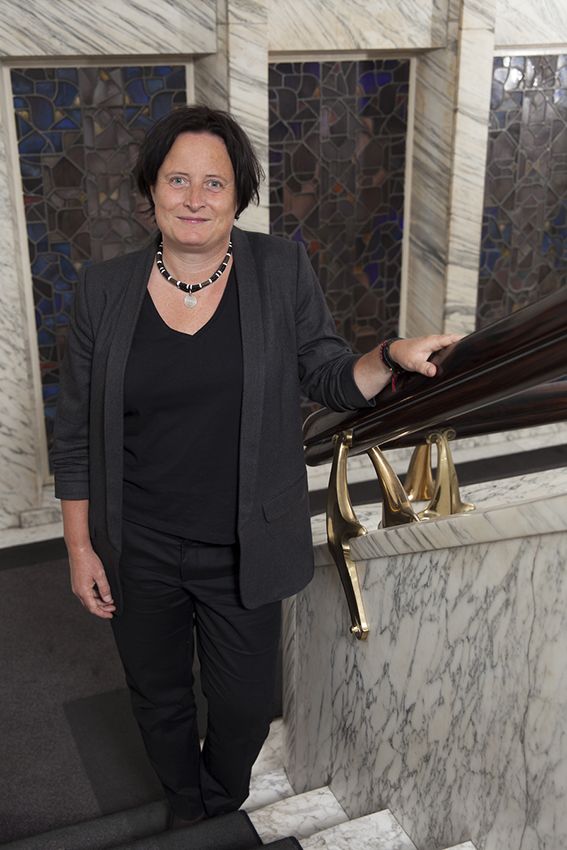
What about you Marieke?
Companies like FinTech…
Marieke: Yes, that’s really interesting. ING has a strong focus on innovation. Investments in and partnerships with Fintech companies is an important part of that.
How do you value a company that you’re thinking of buying or merging with? Is the sky the limit? Or are there still some strict rules?
Marieke: There’s a number of very broad norms out there. I mean, we value businesses on Discounted Cash Flow, or on industry comparables or previous transactions. You should have a look from all three perspectives. For listed companies, the premium is an important metric.
What about the newbies? Companies that have not proven themselves yet but have great ideas. How do you value that?
Marieke: It is often about the people and their ideas. So you have to look for structures which enable them to create value, for example convertible loans.
About investments in the US. Do you see that there is a slow-down in investments or is business actually better now that we have the Trump administration?
Mike: There is a lot to say about Trump and what he does. On the other hand, a lot of people that we’ve spoken to actually say that there is more business in the US market now than there was before.
We represent a few clients, also Dutch clients, moving into the US. They actually find it very difficult. Also to find targets. The dollar’s value is high. So it’s a bit of an issue.
Stewart: I would agree that some of the economic factors are as relevant as the current US administration. Although it has weakened a bit recently, we indeed have had a strong dollar for much of the last 2 years. And the tax situation is important. If the administration lower tax down on repatriated profits from abroad, its likely that the massive amount of money companies have outside the United States will find its way back home. If the tax remains as is, companies are more likely to invest in M&A elsewhere.
Philips had a problem selling a Company due to the US Administration?
Stewart: We were selling our LED Lighting business, Lumileds. The deal was challenged by the CFIUS Committee, a multi-departmental body set up to look at M&A deals that may impact US national security. Anyhow, the transaction was ultimately not cleared by CFIUS so we moved on. I’m glad to say we meanwhile sold a majority share in Lumileds to Apollo, the big PE player. The business has a great future in my view. LED is the lighting technology of the future.
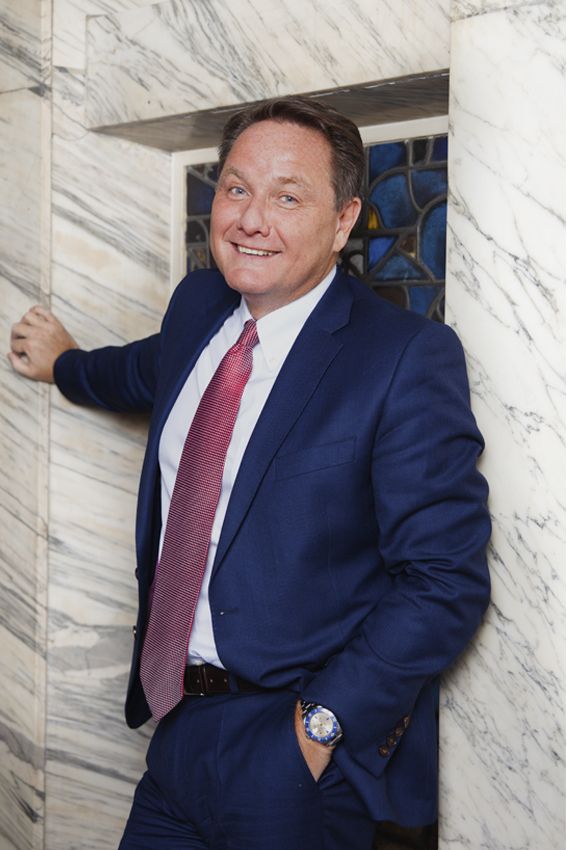
Investing in the United States in the Trump era. Good or bad idea?
Marieke: Investors like a stable investment climate and the current uncertainty might be a reason for caution, for the regulators as well.
Kaspar: A lot of uncertainty at this moment. I’ve also seen it with Saudi Arabia wanting to buy ports in the US. Their administration is holding back. So they try to buy everything else in the world. But if you come to them, there’s a lot of security.
Annelies: That’s also the case with internet, with Facebook, Google and all. If you look at the big Silicon Valley companies, the data they are collecting and the security and privacy issues… That’s a main issue for the common years. Are we still happy that all our data is stored and looked after in the United States? That could have an effect on the economy of the United States.
If you find all those difficulties when going West, what would be the alternative now? Are there any? Or is there not much you can do in the rest of the world?
Stewart: Healthcare is around 18%of GDP in the United States. In the rest of the developed world, it’s single-digit or low double-digit. – including Japan which is the world’s second largest Healthcare market. So, from a business angle, there’s a huge growth potential for healthcare in India, China, Vietnam, Thailand and so on. The question is how fast will it go?
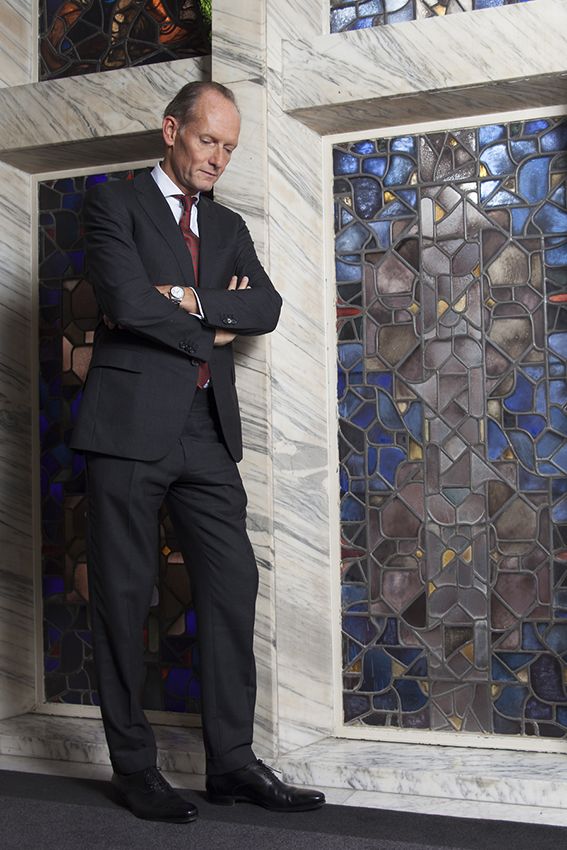
Foreign parties buying Dutch companies. Should we be happy with it? How defensive should we be? And should we regulate it?
Mike: We are an open economy. There have to be some guarantees to what is happening. But you cannot lock it down.
Do you tend to worry or do you tend to think it’s good for our business?
Mike: No, I’m leaning towards not to worry.
Annelies: Same here. I wouldn’t worry. We always had these debates that it would be very bad for Holland. So far I don’t think there is any proof. And we wouldn’t want to be limited either to do transactions abroad. So you can’t put a wall here, where only we can go out an no one can come in. So no, that’s part of a global economy.
Marieke: But it should be a level playing field.
Annelies: Yes, I totally agree with that. Good point.
Marieke: I think the tendency is more going protectionism than going towards an open economy. So it is something we have to think about.
Kaspar: I agree with the level playing field principle and I wish we could be such an open economy. But I think we should be prepared how to deal with an environment in which protectionism is almost inevitable. In the airline industry we have plenty examples of airlines subsidized by Governments as important step to develop the national economy or national pride… like the Gulf carriers.
Mike: There is also a sentiment out there. I was involved in a very hostile take-over five years ago. I acted for the management of a company. And this management was heavily resisting to this take-over. And then everybody, also the newspapers, would say: “It’s very impolite. We have a poldermodel. You should talk to each other.” And the whole atmosphere was like this management was doing something wrong. Because if there’s a take-over, you have to act politely, you have to invite them, etcetera. We needed to do all these things. If you read the papers now, it’s totally the opposite. They would say that a company has a right to resist.
Is AkzoNobel an example of how to do it, how to deal with it?
Kaspar: If I look at my experience with the merger with Air France, there was a constructive atmosphere which helped to deal with a lot of difficult topics like the brand of KLM and the hub operation in Amsterdam. As it also links to the development of national economies, Governments had also their interest. As I appreciate the open economy and level playing field, I also see that other Nation are protecting their own companies more then we do. France for example…
They have very strong unions as well.
Kaspar: Indeed they have strong unions. But you also see that this puts pressure on the local economy. It makes the economy of France less competitive as they are more protected.
I think it is very important to be innovative. The world is changing fast and you need as economy and as company be agile. New players and developing countries like China and the Middle East, are investing tremendous amount of money in Europe. The interesting question is, do we welcome these investments or do we see it as selling out our intellectual property to countries which do not have the same culture and principles we have?
We could sell a lot of infrastructure or IP kind of things to Saudi-Arabia or China. But the question is, do you really want that or do we also have limits to our openness? That’s still a valid question.
For KLM, I have set up an investment fund to stimulate innovation in the airline sector. And we see that a lot of interest for these new companies is also coming from China and the Middle East. As company it can be appealing to receive suchs investments. But it’s often not the one that gives you the most value at the end of the day, as they do not share the same open culture and principles. Though they are prepared to pay the most, now.
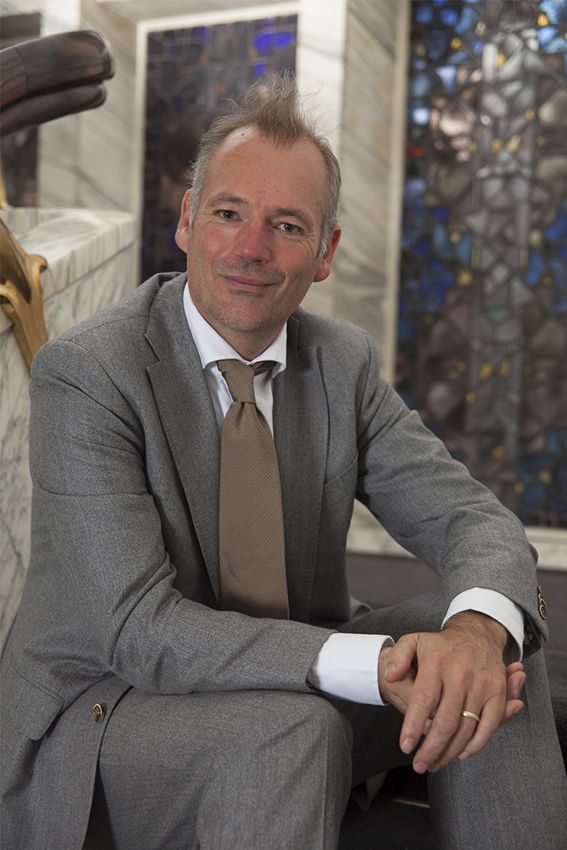
Should we have laws? Should governments be more involved in how and what? Or is it already taken care of pretty good?
Kaspar: I’m generally against that. But it’s simply another side of the coin of what we were just discussing. How open do you want it to be? If someone comes in and tries to buy your core infrastructure, the railways or energy generation, people get just nervous about it. So there might be an endgame in which some of the fundamental infrastructure is a bit protected like they do this in France.
Annelies: But you don’t need to prohibit M&A transactions. If you really want to protect the infrastructure, you can also make a set of regulations. For electricity networks for instance or other infrastructure as long as you have a good regulatory framework - that is always applicable even though the shares of the company are changing hands – you don’t need a bigger involvement of the government.
I’m not a financial. I’m just a Dutch journalist with certain feelings for Dutch companies. I’m proud of Philips. I’m proud of KLM. So how do you or shareholders deal with these sentiments?
Annelies: All those newspapers and also pension funds saying yeah, we should protect our national jewels. Then I think, put your money where your mouth is. Just buy shares of those Dutch companies and don’t sell them to anyone who is bidding on them.
Stewart: Philips is indeed a Dutch icon. I’m extremely proud of Philips, even though I’m not Dutch!! I fully recognize the local sentiment towards the company. This said, we are a global multinational and have to win on the world stage. It’s true that we can make a big multi million deal in America, and it can get less news coverage than a much smaller event here in the Netherlands. That’s just human nature. People look locally. There is absolutely no doubt in my mind though – Philips is Dutch! Full stop!
How can M&A lawyers serve their clients in the future even better? Especially since we see a tendency of clients being more self-sufficient.
Annelies: When I started working as a lawyer, I didn’t have any virtual data room. Now, it’s all virtual data rooms. If I look at Rocket Lawyer or Legalzoom. There will be a lot more new innovations that empower people to do more themselves.
Annelies: But couldn’t it simply be that it just enhances the services that you make? And it also adds value for money, because it makes everything much more efficient. Instead of going to Middelburg or wherever, you can easily do things from behind your desk. It enhances the value of services so I think it’s a very good thing. Everyone who is open-minded should embrace new technology and we’ll all benefit from it. So I’m looking at it from a very positive point of view.
Mike: Absolutely! This has been changing for years already. When I started working in M&A you’d have those huge groups of associates doing stuff that we don’t do anymore for years now. And I defenitely agree that part of our work is done much more efficiently with all the tools we have now. And I’m sure we will have more. On the other hand, there also is a part of our business that’s very difficult to replace by anything else. When you do a negotiation for instance. There are a lot of programmes and innovations in the field of drafting for example. But it has always been very difficult for a computer to draft an agreement.
Marieke: You still need input from people. But I agree. Larger companies with large legal teams in particular can do more and more themselves.
Stewart: I agree. I don’t think you can actually run up a merger agreement or something automatically. But possibly there is technology that could make it simpler to digest. I certainly meet too many lawyers who almost take pride in the complexity of their documents or the size of it, rather than making it simple. Some lawyers on the other hand, take Arne Grimme at DBBW, can make anything simple. He has the ability to take a very thick merger agreement and quickly get to the heart of it. Helps a lot!!
One other quick one that we’re prototyping right now is artificial intelligence in the data rooms. So sending in AI to go and hunt for certain things and bring back trends, key words etc.
Marieke: Now how will all this innovations and technology influence legal support? For law firms, part of their work has been, or is going to be, taken over by AI tools and apps. And the same applies to a bank.
Kaspar: Yes. And you’re not competing with traditional competitors anymore. Your competitors can be everywhere. A small start-up can be your competitor. So everything is changing and that’s driven by technology.
Stewart: In my private life, I send money back to the UK for different things there. And I used to do it via a Dutch bank all the time. And now I just use this money transfer app, which is 70% cheaper than the bank for the same money going to the same bank. I don’t know why that is. But it’s been working for eighteen months and I’m completely happy with it.
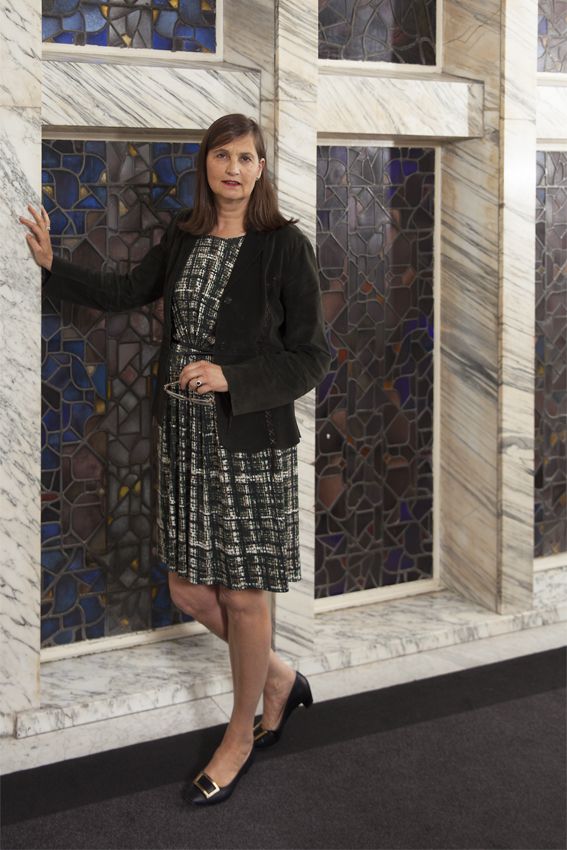
So what will be the consequences for the judicial Dutch landscape when it comes to Brexit? Will we still apply English law? Is it going to be more New York?
Annelies: English law is more important for financing M&A transactions. Although I have to say that also for ECM transactions more and more investment banks, also foreign ones, accept Dutch law. Where previously that was a difficult discussion. So the acceptance of for instance Dutch law in international transactions has increased. But English law is still really important for financing transactions. And I just wonder what will happen if people will no longer choose English law. You don’t know what the situation will be in three years’ time. How the English court judgement be recognized? There’s uncertainty. So would it be divided into French law, German law? Which is okay since it’s all more similar. Or would there be a tendency to New York law? That would be less favourable because if you have to go to court there, it’s very costly.
Stewart: I agree with Annelies. For whatever historical reason English and English common law is a kind of recognized standard for a lot of stuff. Maybe because it was there first, or was the biggest. I don’t know the origin of all this. But it feels like a real risk. And as a British person I would hope that this, amongst many other things, could be one of the early wins that comes out of the negotiations in Brussels right now. They just have to say categorically we’re going to stick and rule on English law. Full stop. It’s the same as can I stay in the Netherlands? Well, they just should say yes, you can stay in the Netherlands. Even more so for Dutch people. Because there are more Dutch people in the UK than there are British people in the Netherlands!!
How and why is Philips transforming itself into a health technology company?
Stewart: A lot of investors now prefer to do their own diversification (within their fund) rather than put money into diversified companies. There is a lot of desire to focus on one thing so we separated Philips into two great businesses, one focussed in Lighting, the other on Health Technology. We will invest in heath for all the reasons mentioned earlier: its an industry that should become much more personalized, consumerized, digitized, more efficient. We think we can make a big impact on that.
If I were to sum up what we have discussed it would be that we live in a fast changing world, also when it comes to M&A’s. It takes a different approach. It takes a different outlook. But it also comes with a lot of uncertainty.
Marieke: It’s unprecedented. So that’s what makes it so exciting.
